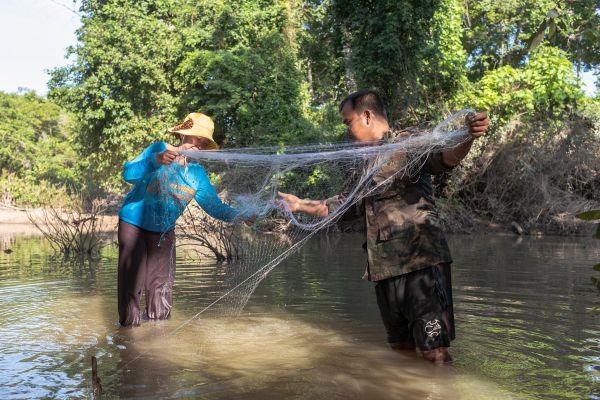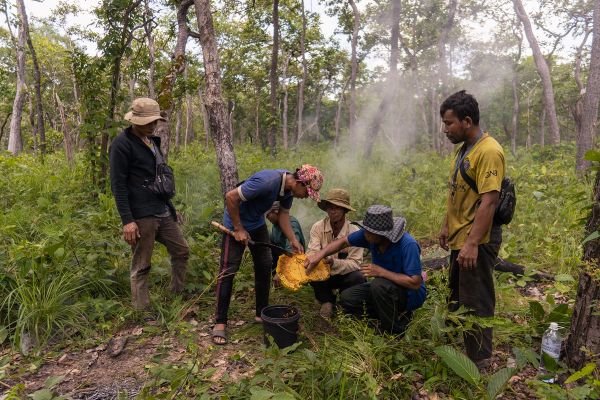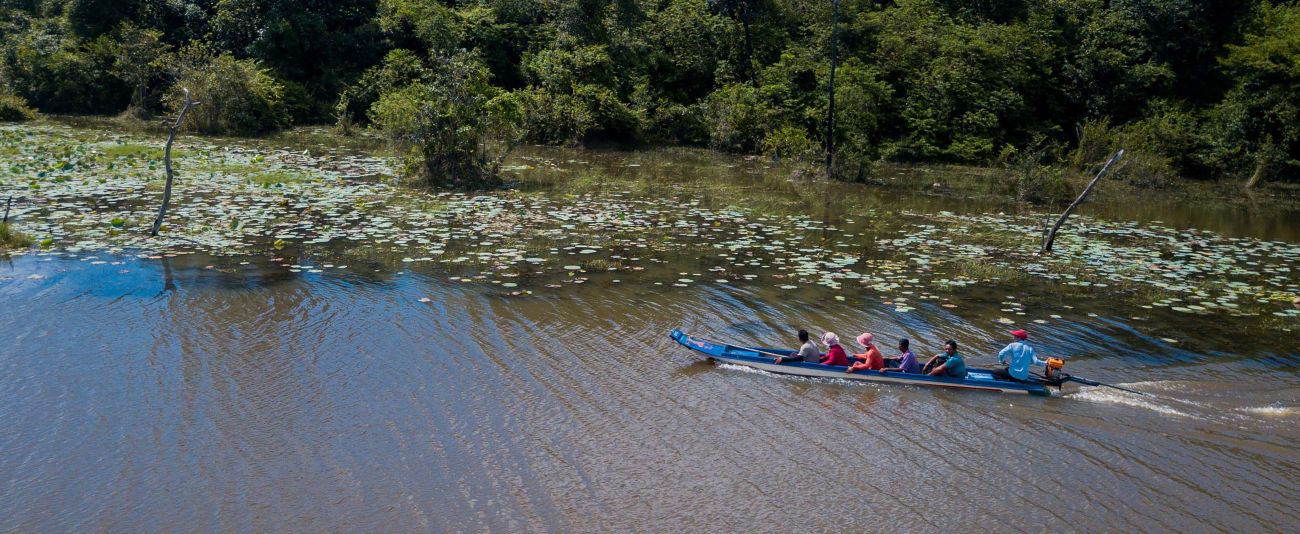
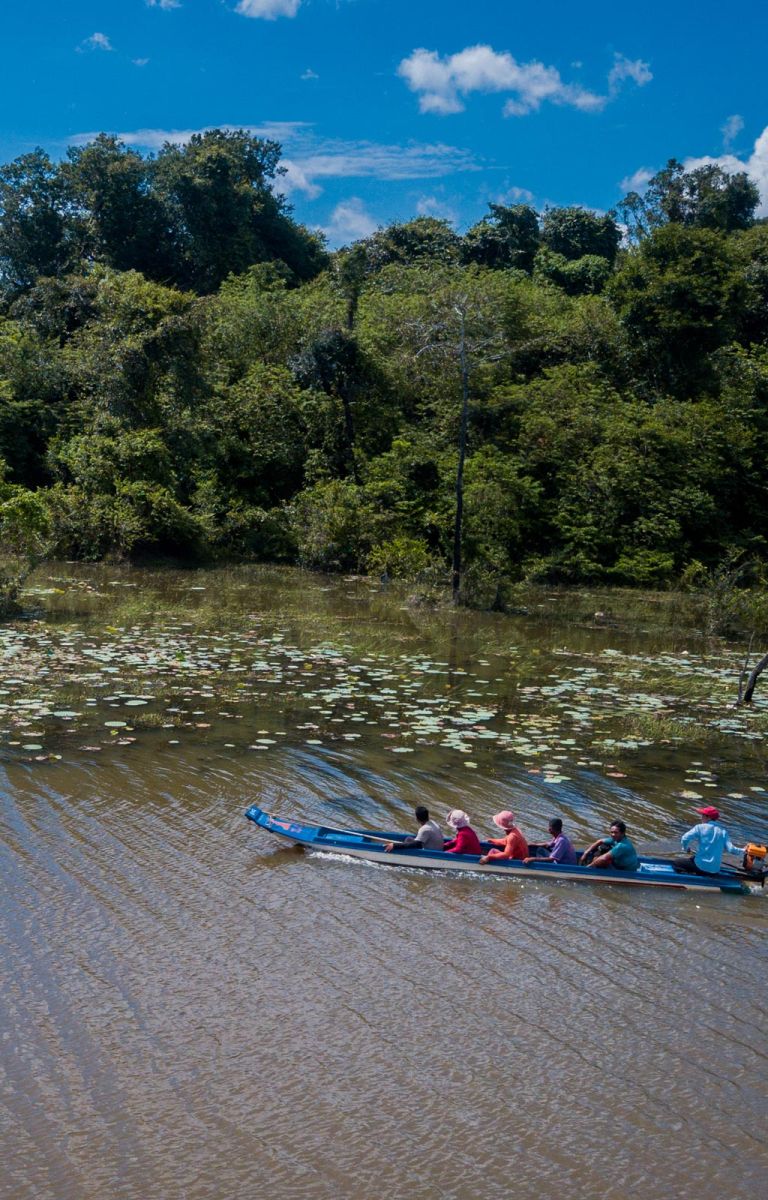
Thida Horn is one of 16 villagers in Cambodia’s Kratie Province who formed the Koh Samseb ecotourism group, which offers services to tourists visiting islands in the Mekong River.
“I am glad to work with ecotourism,” says Horn. “My livelihood has improved a lot and I can now provide for my two children who are studying in Phnom Penh.”
Koh Samseb was established by members of local community forests and fisheries. It is supported by the Partnership for Forestry and Fisheries Communities in Cambodia (PaFF), which RECOFTC Cambodia is leading in its third and final phase.
In June 2022, the ecotourism group adopted a five-year development plan with guidance from PaFF, in collaboration with local government, nongovernmental organizations and the private sector. The plan covers training in hospitality, waste management and financial management. It includes strategic actions to boost tourism through partnerships with tour operators and new activities to attract visitors.
“The plan gives us vision,” says Khut Samol, chief of the ecotourism group. “We know our priorities and what we can do, and what support we need from others to help us to grow and attract tourists.”
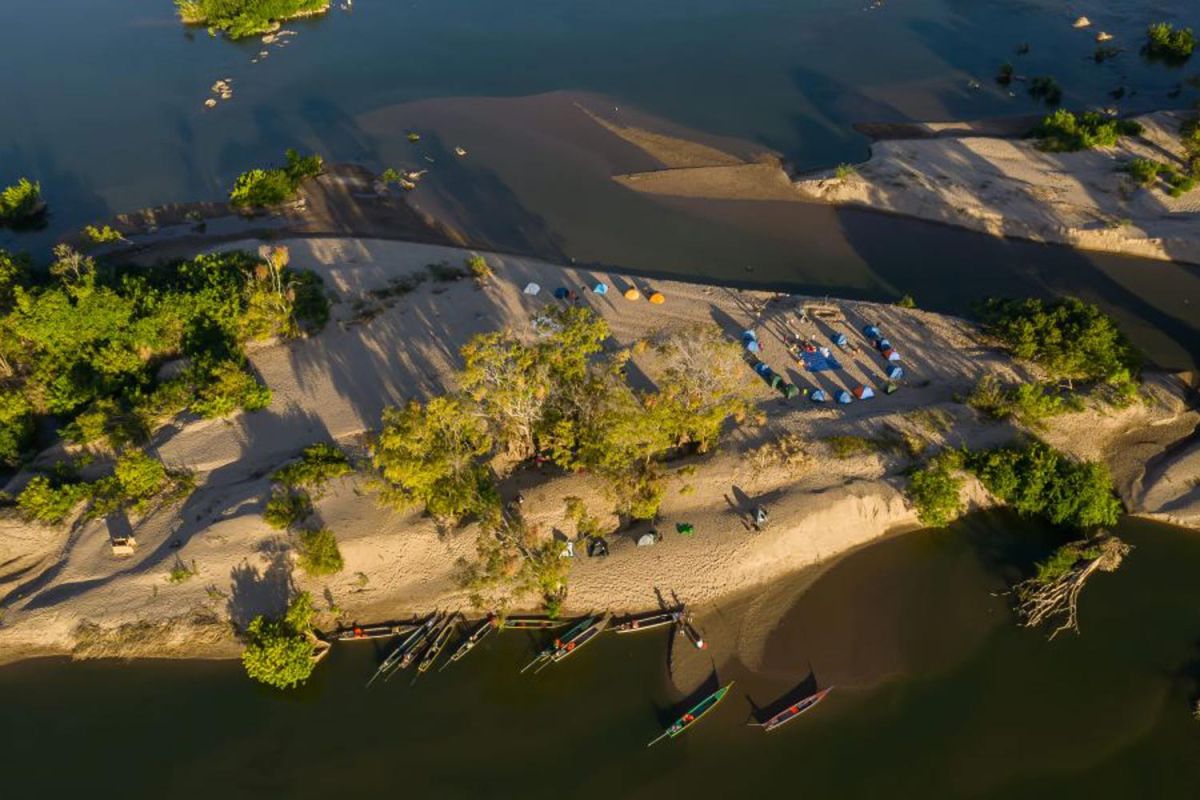
Horn and Khut are just two of the tens of thousands of rural Cambodians who are benefitting from PaFF. The partnership is helping communities claim and exercise their rights to sustainably manage natural resources by implementing one of Cambodia’s three models of community forestry. It is strengthening capacities, improving livelihoods, increasing forest protection, boosting supportive networks and introducing mechanisms for sustainable finance.
Network power
Recognizing the importance of collective power, PaFF is supporting 21 networks for members of community forests, community fisheries and community-protected areas. These include networks at the commune, district and provincial levels, as well as three networks specifically for women. PaFF also supports eight multistakeholder platforms through which network representatives can advocate for stronger rights and supportive policy reforms and hold government actors accountable to fulfil their duties.
In 2021, for example, two men who are members of community forests in Kampong Thom Province were falsely accused of violence by a businessperson who was trying to grab part of the O’Plovlok Community Forest. When the men were jailed, other community members raised the alarm, informing the commune council, the Forest Administration and the provincial community forestry network.
Keo Vanna, chief of that network, alerted government ministries, the provincial governor, members of the National Assembly and representatives of local authorities. Her quick action, and the power of networks, contributed to the men’s release after nine days of uncertainty.
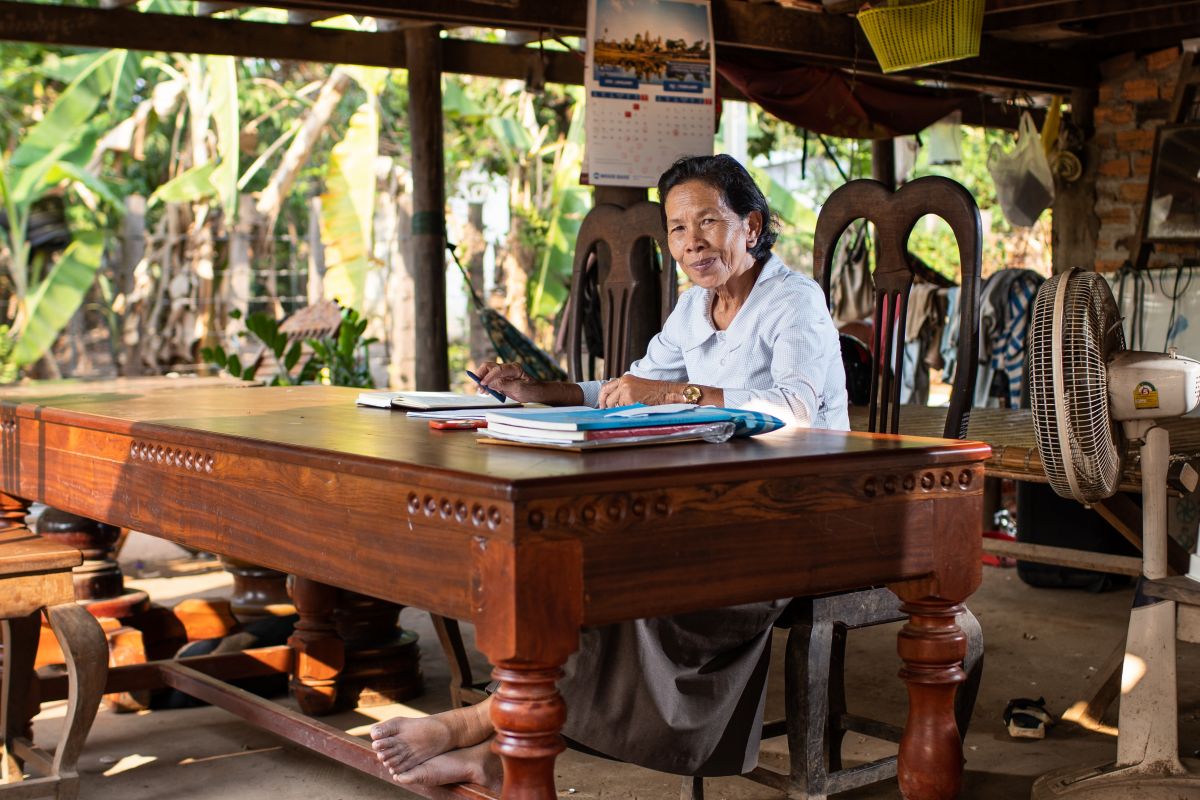
One of the arrested men, Khiev Koy, says more must be done to defend community forests.
“For this to be sustainable, we need more support to make community forestry profitable,” he says. “That’s the best way to ensure the forest is defended.”
Sustaining success
PaFF recognizes this need for financial sustainability. Between October 2021 and September 2022, the partnership set up dozens of credit schemes and mini-trust funds for community forests, fisheries and protected areas. These and the ones that PaFF established in previous years now generate a total of around USD 6,500 each month in interest.
“The interest from credit scheme and trust funds, together with PaFF-provided training, is increasing community-led patrolling and reporting of crimes relating to land and natural resources.” – Tol Sokchea, RECOFTC Cambodia
Communities use this money to implement management plans for their areas or to increase the capital in their credit schemes. Borrowers use their loans to start small businesses, pay for their children’s education or buy fertilizers and other agricultural inputs. As they repay loans with interest, the schemes grow.
“The interest from credit scheme and trust funds, together with PaFF-provided training, is increasing community-led patrolling and reporting of crimes relating to land and natural resources,” says Tol Sokchea, RECOFTC Cambodia’s program manager for Phase 3 of PaFF. “Between 2021 and 2022, PaFF-supported communities raised 482 cases of illegal logging, land encroachment and related illegalities with the authorities.”
Community-based enterprises, like the Koh Samseb ecotourism group in Kratie Province, are another source of income. PaFF has established 11 of these enterprises and provides ongoing training and other forms of support. A business selling honey from the Prasat Teuk Khmao Community Forest in Kratie Province pays five percent of its profits to the community forest management committee. Between 2021 and 2022, it generated more than USD 700 that the committee could use to cover the costs of forest patrols or other activities in its community forest management plan.
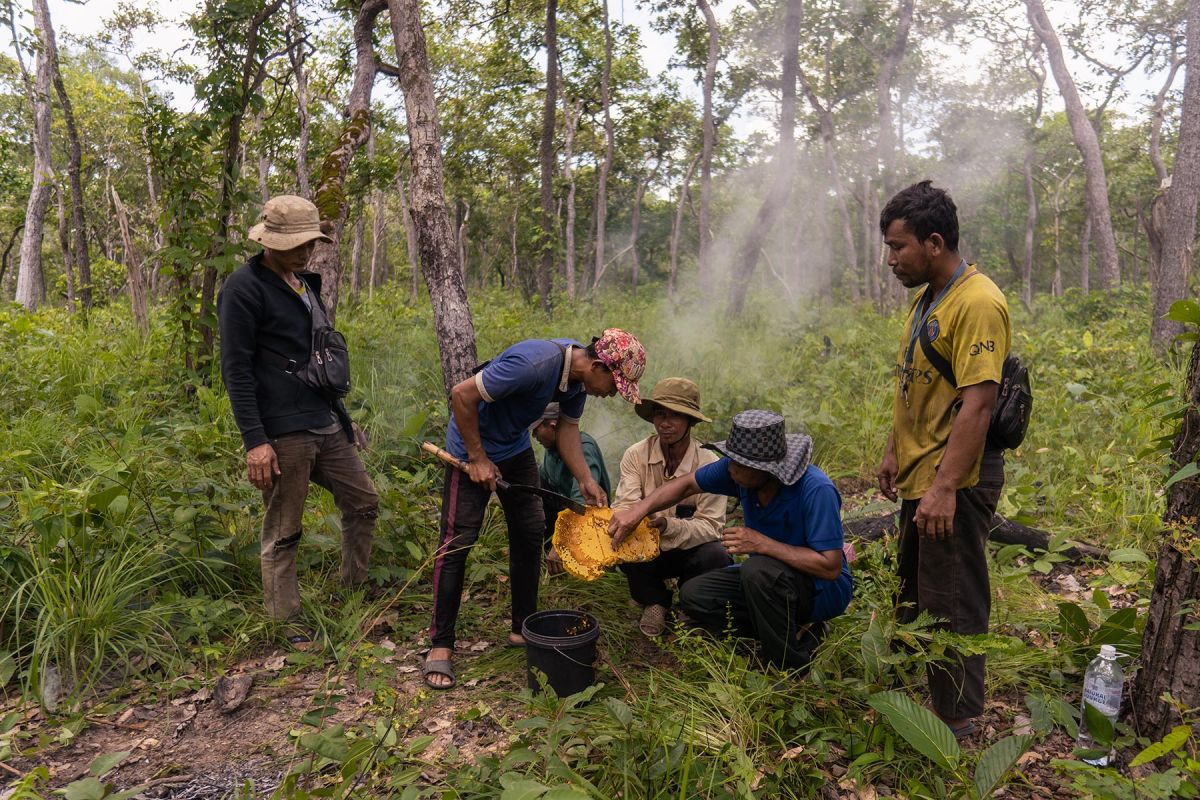
With PaFF’s support, communities managing community forests, fisheries and protected areas are finding ways to sustain their activities. As PaFF enters its final year, RECOFTC will focus on documenting lessons from the experience and working with communities and government actors to ensure that the partnership’s impacts continue.

